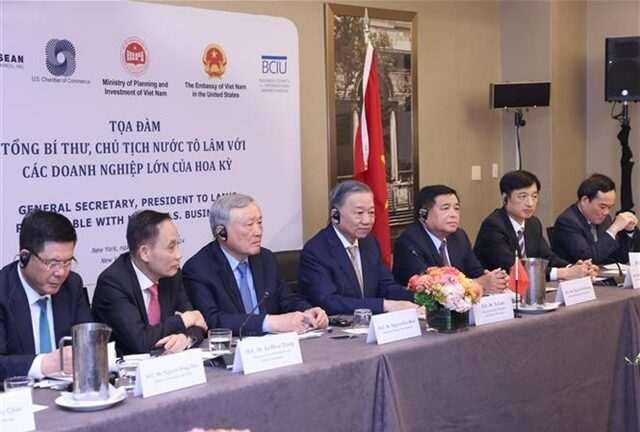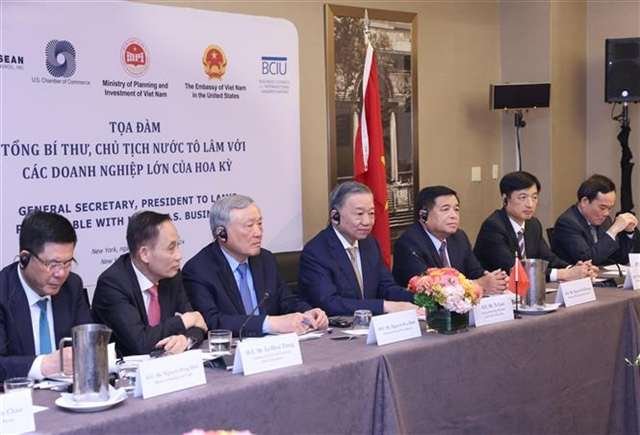Vietnam’s push to strengthen economic ties with the U.S. took a significant step forward as Party General Secretary and State President Tô Lâm attended a high-level forum in New York, engaging with top U.S. business leaders. This forum, held during the 79th UN General Assembly’s high-level week, was organized by the US-ASEAN Business Council (USABC), the U.S. Chamber of Commerce (USCC), and the Business Council for International Understanding (BCIU), in cooperation with Vietnam’s Ministry of Planning and Investment.
The event drew the attention of leading U.S. companies eager to explore business opportunities in Vietnam, and showcased the Southeast Asian nation’s potential as a key partner in sectors ranging from technology and renewable energy to finance and health care. During the forum, the Vietnamese delegation highlighted Vietnam’s commitment to streamlining business operations by removing institutional barriers and offering favorable policies for foreign investments.
American businesses have taken note of Vietnam’s dynamic economic growth over the past decade, with many lauding the government’s strategic vision and the country’s emergence as a global player in industries such as artificial intelligence (AI), biotechnology, and semiconductors. These sectors are pivotal as Vietnam seeks to build a knowledge-based economy and position itself as a major hub for innovation in the Asia-Pacific region.
At the forum, President Tô Lâm acknowledged the global economic challenges posed by inflation and geopolitical conflicts but emphasized that regions like Asia-Pacific continue to serve as the engine for global economic growth. He reiterated Vietnam’s dedication to peace, stability, and cooperation, particularly in its relationship with the U.S., which has grown stronger in recent years.
Trade between the two nations reached over $110 billion in 2023, marking a significant achievement for both economies. The U.S. remains Vietnam’s largest export market, and Vietnamese companies are increasingly expanding their footprint in the U.S., taking advantage of new opportunities across multiple sectors. Despite these successes, Lâm stressed that there is ample room for further collaboration, particularly in high-tech industries.
In a direct appeal to U.S. businesses, Lâm called for increased investment in key sectors such as the green economy, renewable energy, AI, and digital technologies. He urged both sides to foster closer cooperation in science and technology, promoting mutually beneficial relations that will elevate the strategic partnership between Vietnam and the U.S. to new heights.
As Vietnam continues to position itself as a leader in the Fourth Industrial Revolution, the country is actively seeking to attract investments in research and development (R&D), semiconductor production, and financial services. President Lâm expressed optimism that with the continued support of U.S. businesses and favorable government policies, Vietnam could soon emerge as one of the world’s most competitive markets for technology and innovation.
The forum also saw the exchange of cooperation agreements between several leading Vietnamese and U.S. firms, including a significant partnership between the Vietnam Oil and Gas Group (PETROVIETNAM) and General Electric (GE). Such agreements underline the growing economic interdependence between the two countries and highlight the potential for future growth.
Looking forward, Vietnam’s leadership remains committed to building an open, transparent, and business-friendly environment. By continuing to improve its investment climate and expanding its international partnerships, Vietnam aims to not only sustain its economic growth but to emerge as a global leader in multiple cutting-edge industries.
With forums like this, Vietnam is cementing its role as a key player in global trade and investment, forging closer ties with the U.S. and setting the stage for a new era of economic collaboration. As both countries look to the future, the focus remains on ensuring long-term prosperity and stability for their respective economies.

